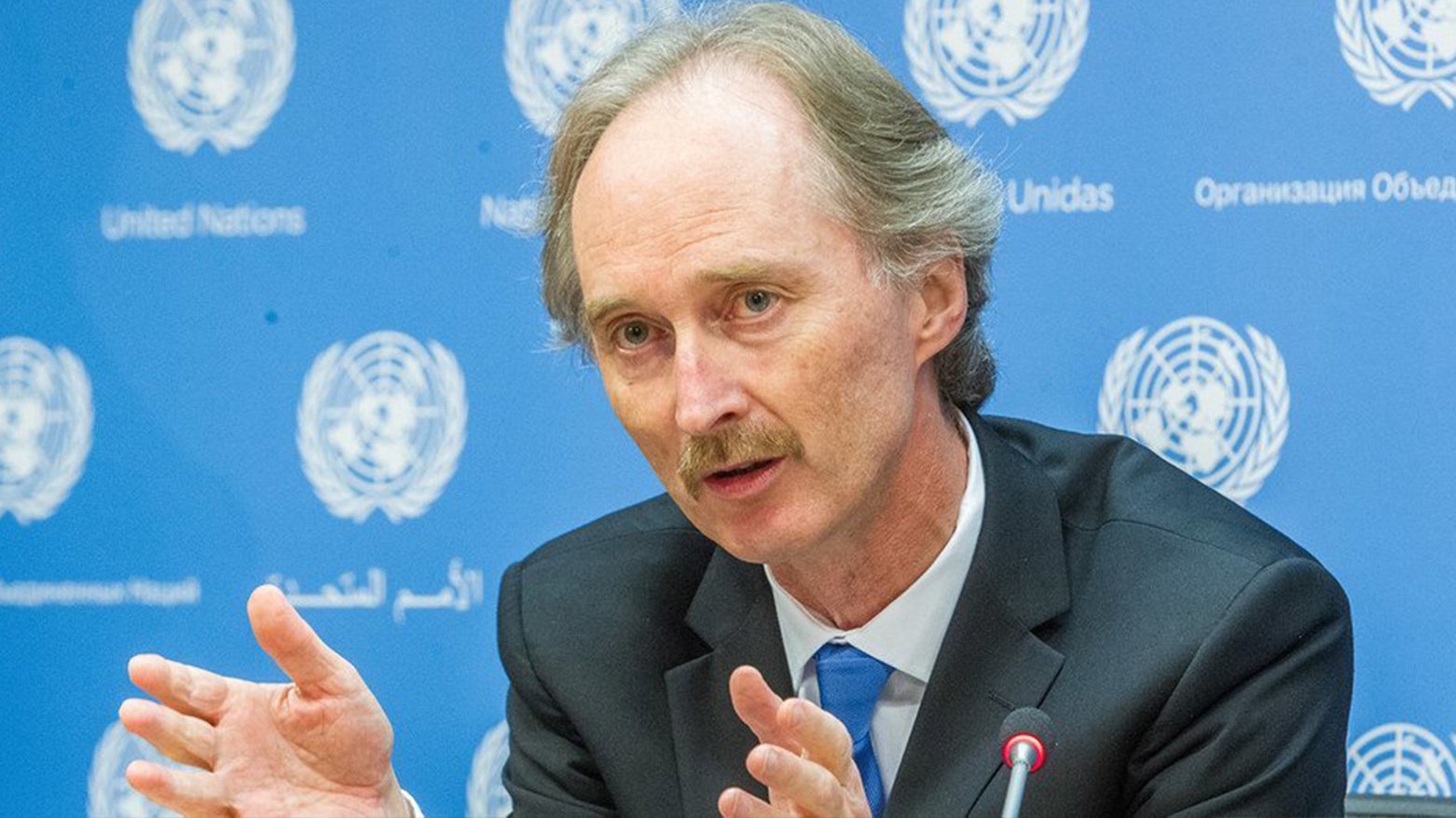UN Envoy Sees Progress in SDF-Damascus Talks Amid Syrian Coastal Violence
"The agreement is a significant step towards unity, While challenges remain, the commitment of both parties to dialogue is encouraging," Geir Pedersen said.

By Ahora Qadi
Erbil (Kurdistan24) — UN Special Envoy for Syria, Geir Pedersen, has expressed cautious optimism regarding ongoing negotiations between the Syrian Democratic Forces (SDF) and the Syrian government, as the country grapples with renewed violence on its coastline.
Pedersen's remarks came during a UN Security Council session on Syria, held in the aftermath of deadly clashes in the Latakia and Tartous provinces. He stressed the urgent need to rebuild trust among Syrian factions and investigate the attacks, which resulted in the deaths of over 1,600 civilians, most of whom belonged to the Alawite minority, according to the Syrian Observatory for Human Rights (SOHR).
"We must restore confidence among all Syrian parties," Pedersen said. "The recent violence has further destabilized the situation, making it crucial for an independent investigation to identify the perpetrators and ensure accountability."
Coastal Violence Sparks Investigation
Following the attacks in the coastal regions on March 6-8, the newly established Syrian Interim Government formed an independent investigative committee. Speaking at a press conference in Damascus, committee spokesperson Yasser Al-Farhan confirmed that over 95 testimonies had been gathered, with more than 30 additional reports submitted electronically.
"We are committed to conducting a transparent and impartial investigation," al-Farhan stated. "While it's too early to release conclusions, we will ensure that all findings are documented and disclosed in accordance with international standards."
The committee, which began its fieldwork on March 14, has also examined 93 digital evidence files and is coordinating with the UN Commission of Inquiry on Syria. The next phase of the investigation will involve visits to Tartous, Baniyas, Hama, and Idlib.
Reports indicate that the violence was triggered by remnants of Assad regime loyalists, who launched coordinated attacks against government forces. Survivors have accused these factions of conducting sectarian killings, targeting families based on their ethnicity or religious affiliation.
"Civilians were dragged from their homes and questioned about their sect before being executed," said a survivor who spoke to human rights organizations.
UN Reports 21,600 Syrians Flee to Lebanon in One Month
The United Nations refugee agency said Tuesday that more than 21,000 people had arrived in Lebanon this month fleeing the worst bloodshed in Syria since Bashar al-Assad's ousting.
A Syrian committee investigating the wave of sectarian killings in the heartland of the country's Alawite minority said Tuesday that it had collected scores of accounts of the violence, with its probe ongoing.
The UN refugee agency (UNHCR) reported "21,637 new arrivals from Syria" into northern Lebanon, in a report citing figures provided by Lebanese authorities and the Lebanese Red Cross.
SDF-Damascus Agreement and Path to Unity
Amid the turmoil, Pedersen acknowledged positive developments in political talks between the Syrian government and the SDF, facilitated by the agreement between Ahmad Shara and SDF Commander Mazloum Abdi. The deal includes the integration of SDF forces into the Syrian National Defense Forces and the transfer of civil administration responsibilities in northern Syria to Damascus.
"We have seen progress in the dialogue," Pedersen noted. "Both sides have demonstrated a willingness to negotiate and implement confidence-building measures, which is essential for long-term stability."
According to the agreement, border crossings, airports, and energy facilities will be reconnected to Damascus. In return, the Syrian government has pledged to recognize local administrative structures and ensure Kurdish representation in the upcoming constitutional negotiations.
"The agreement is a significant step towards unity," Pedersen said. "While challenges remain, the commitment of both parties to dialogue is encouraging."
Turkish Strikes and Ongoing Clashes
Despite diplomatic progress, tensions in Northeast Syria (Rojava) remain high. Pedersen condemned recent Turkish airstrikes targeting SDF-held areas, further complicating the fragile security situation.
"The violence in northern Syria must end," he asserted. "We urge all parties to respect ceasefire agreements and prioritize dialogue over military escalation."
Reports from Kurdish officials indicate that Turkish strikes have intensified in recent weeks, leading to civilian casualties and displacements.
International Support and Transitional Justice
The international community has closely monitored the developments in Syria. The European Union (EU) reiterated its support for Syria's transitional government, emphasizing the importance of inclusivity and justice.
Speaking from Cairo, EU foreign policy chief Kaja Kallas called on the interim government to represent all Syrian components, including everyone .
"A future Syrian state must guarantee the rights of all its people," Kallas stated. "We stand ready to provide economic and political support to ensure a stable and inclusive transition."
Kallas further stressed the need for an independent judiciary to investigate war crimes and ensure accountability.
"The establishment of a transitional justice system will be a cornerstone for lasting peace in Syria," she added.